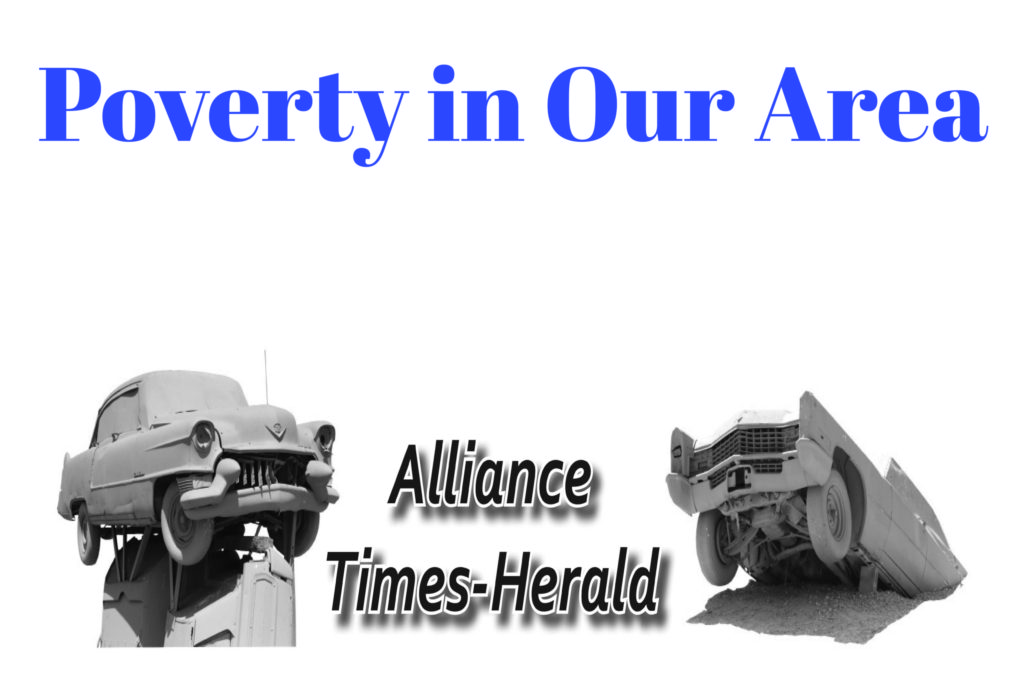If you are in the neighborhood of the Catholic Church on Tuesday mornings, you know something special is happening. Cars are lined up around the block on Big Horn, 10th Street, and Cheyenne, to drive down 9th Street where they receive Farmers to Families Food Boxes.
When the coronavirus pandemic hit America, food service businesses like restaurants and hotels no longer needed the fresh food products they prepared and served to their customers. Farmers and distributors found themselves with plenty of food but no market. But families, many of whom lost their jobs, were facing higher prices and shortages in grocery stores. This spring the USDA set up a program to help solve this problem.
The USDA Farmers to Families Food Box purchases fresh produce, dairy, and meat products from farmers. Distributors package these products into family-sized boxes and then transport them to food banks or non-profits who serve Americans in need. The project has been funded through the end of August.
Northwest Community Action Partnership has facilitated the program by initially making all the necessary contacts to get our area involved and by placing the weekly orders. CASH-WA is the food service distributor. They receive the food, package it into boxes of meat, dairy, and produce, and use their refrigerated truck to bring it to our community. United Way is responsible for organizing volunteers to hand out the boxes to families.
The CASH-WA food truck arrives at 8:30 Tuesday mornings and is unloaded from 8:30-9:00 on 9th Street. Originally distribution was to begin at 9:15, but due to the long lines food boxes are handed out beginning at 8:45 until everything is gone, around 9:30.
So what does a family receive? Three boxes of food and a half gallon of milk. Enough to feed a family of four for one week. The dairy box contains cottage cheese, sour cream, cheese, and yogurt. The meat box varies; last week it had chicken patties and turkey hot dogs. The produce is fresh, high quality items like tomatoes, potatoes, carrots, apples, lettuce, onions, cantaloupe. Photos on the United Way Facebook page show the distribution and the contents of the boxes.
Families who need food assistance do not need to fill out applications or otherwise prove they qualify. No questions are asked as volunteers load the sets of boxes into vehicles. For the first two weeks of July, 100 households were served before the supply ran out. Last week the number of sets ordered rose to 150. That is over 1,000 boxes of food in three weeks.
I talked to some people who had received the food boxes. One young woman said her household consists of herself, two young children, and her grandmother, and neither she or her grandmother are currently working. The food portions are generous, and she doesn’t need to purchase much more to feed her family for the week.
Another said her family was high risk because of health conditions. She hasn’t been going to stores since February and relies on stores and others to shop and deliver groceries, then sanitizes what they drop off. She said it is such a blessing to have the food boxes, especially since they are high quality, nutritious items. She does not need to make contact with the mask-wearing volunteers who only want to know where she’d like to have them put the boxes.
Other comments were that it is amazing to see how many in our community need assistance, and how wonderful it is that people cared enough to set this all up. Sometimes the lines of cars are crazy, with people trying to get in line from different directions. Maybe people not getting in line should be more patient or avoid these streets, rather than honking impatiently when cars aren’t moving.
The volunteers work quickly each Tuesday morning to ensure all food boxes are distributed. The USDA Farmers to Families Food Box program has given the opportunity for community members and businesses alike to volunteer and give back to the community through their time. Karen Benzel, United Way Director noted, “We have volunteers from many different facets of the community, including area churches, St. Agnes students, local banks, United Way Pacesetter Businesses (PREMA and Park Hannifin) and members of United Way Partner Agencies (DOVES, CAPstone and ARC). Many previous volunteers stop by each week to see if we need a hand. The Farmers to Food Box distribution is truly a community effort and is a prominent example of how our community comes together to serve others.”

